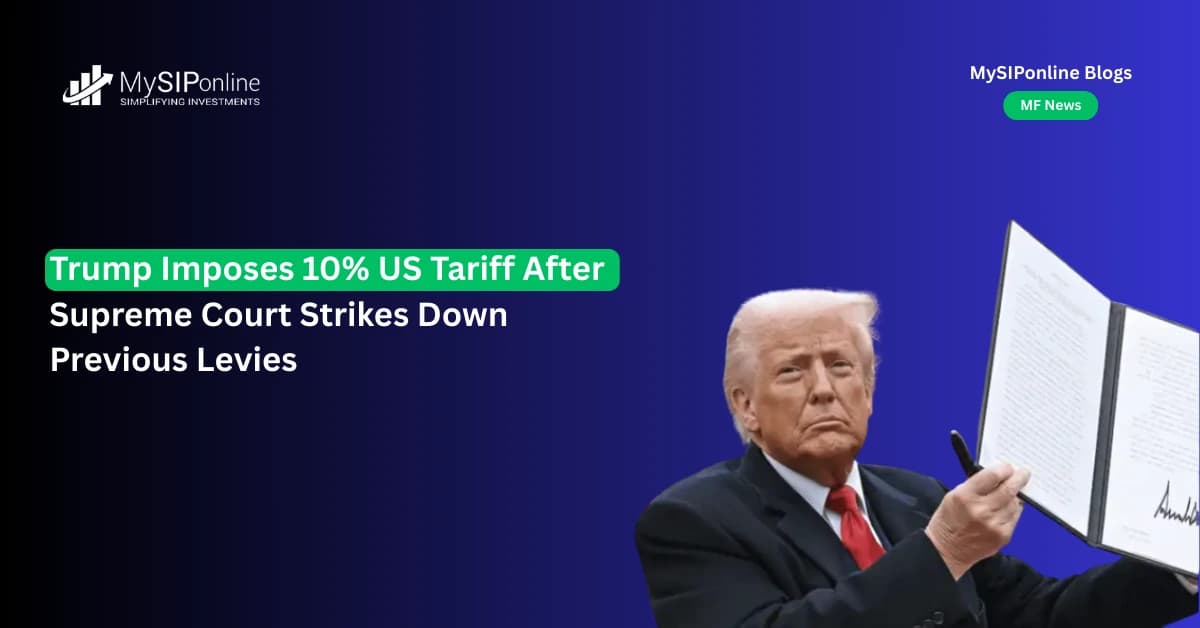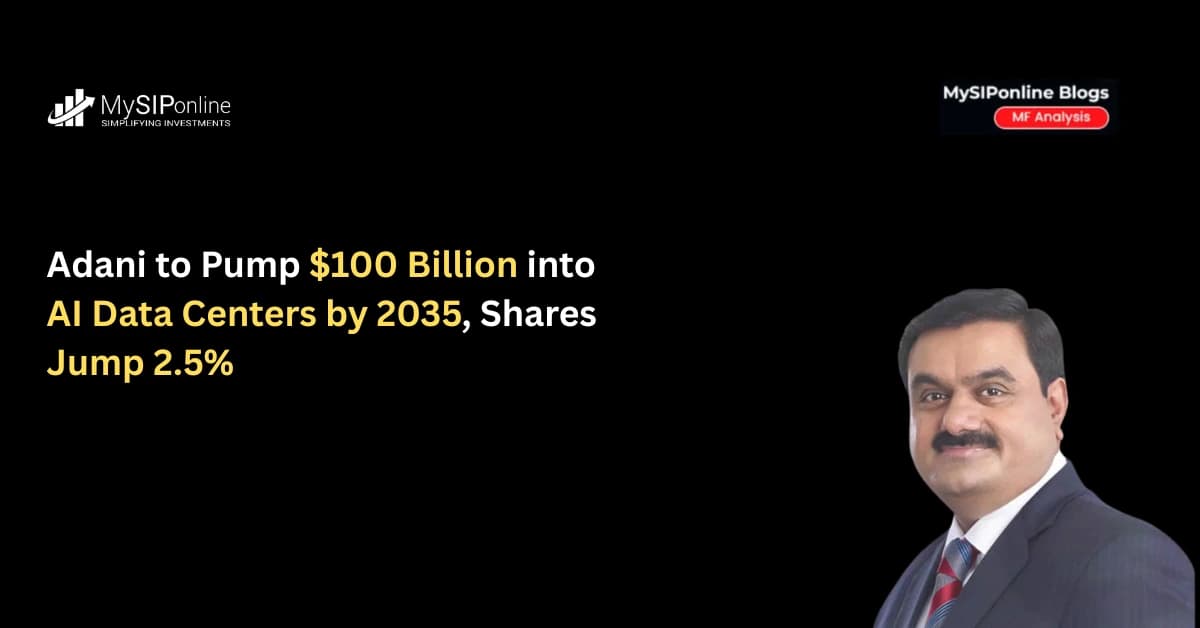‘Too many cooks spoil the broth.’ We hope you have figured out the relevance of this saying with our topic. Diversification of your investment portfolio must be in the right amount. Having too much of it is pointless, just as having too little of it is risky. And, there is an easy way to do this – invest in Mutual funds.
We came across many scenarios where the investors have parked their money in a trivially large number of funds just for the sake of diversifying their range of investment. So, how many mutual funds do you need to have a diverse enough portfolio? The answer is—it depends. We thought that real-life examples make it easy to implement the solutions in our prevailing conditions. So, this time we decided to help you take your decision with the same approach. We took a real client instance where he acknowledged the need of appropriate diversification of the portfolio.
Age: 42
Investment Goals: Child’s Future Security (Daughter’s education & marriage) and Retirement
Investment Tenure: Long-Term
Our client wanted to diversify his portfolio containing ‘equity funds’. Being an entrepreneur, he never fell short and kept on investing in different schemes offered by various fund houses. Recollecting from his past situations, he told us, “At one point in time, I had SIPs of around 20 equity funds. If someone would inspire me to invest in a particular fund because of its positive performance, I would do that to diversify my portfolio.” He was tensed and felt disheartened as all his investments were giving him no returns. Most importantly, he was puzzled while managing too many funds that rested in his portfolio. He realized the need to consult an advisor to figure out how his funds were performing. He got in touch with MySIPonline where the consultants not only helped him manage his portfolio, but also explained the reasons that restricted the growth of the returns from his funds.
Reason #1
As you can see, our client invested to achieve long-term goals. Although he was holding 20 mutual fund schemes till previous year, some of his funds were generating satisfactory returns of 80%. If it would have remained the same way for 4-5 years in the future, we were afraid that all gains would have turned into losses. We alerted him that this situation arrived because he had allocated too little to the winners of his pack. As a result, the returns contributed by the outperforming funds became insignificant in the overall performance. It is a fallacy to think that a large number of funds diversify your portfolio. The idea of diversification advocates investing in different asset classes and securities in order to minimize the overall risk. Stocks of different kinds of companies respond differently to the market situations. They belong to different sectors or parts of the world or even levels of interest cost or forex exposure and tend to do well or do badly at different times. What is the solution? We will answer this question in a crisp and simple way. But before that, let us see another reason that made our client so restless.
Reason #2
He admitted that at a point in time he was unable to keep track of the funds in his portfolio. ‘There is a sufficiency in the world for man's need but not for man's greed.’ You should invest to fulfill your future goals and needs. Wealth creation is a by-product that is left from the returns after your long-term goals are achieved. We advised our client to focus on his investment goals so that he can choose the funds that will appropriately meet his requirements. Advisors say, “Funds have 50-70 stocks in their portfolio, at a time. So, it doesn’t make sense to have many funds.” The more funds you have in your portfolio, the more it will be difficult for you to point out the underperformers. Difficulty in managing your portfolio makes it tedious to track the progress of the goals. Consolidating your portfolio gives room to take corrective actions whenever required. ‘Okay!! But what should I do?’
Here is the answer to your questions. We would like to skip the don’ts and suggest you the dos here.
- Diversify According to the Market Capitalization (Across Sectors and companies): Manage your funds to balance out their spread across different sectors and sizes of companies. This will provide optimum safety. For example, if you want to invest aggressively, you can allocate 60% of your portfolio to mid-cap funds, 20% to multi-cap funds, and 20% to large-cap funds. In that case, targeting two mid-cap, one multi-cap, and one large-cap fund will suffice your need.
- Diversify According to the Investment Style (Choose Fund Manager): As an investor, you should only diversify in terms of fund managers. This way, you will be benefitted by the diversification according to their investment styles. Fund houses have different investment styles because of the difference in the vision of their fund managers.
- More funds never mean more diversification: We generally recommend investing in 4 or 5 funds, as this approach will provide enough of diversification.
- Follow your Investment Goal: We have generally observed, it is the salesman's push rather than an intrinsic need of the investor that leads to the accumulation of too many funds. Determine the least number of funds over a diversified area that can help you meet your long-term goals. For example, some funds can deliver a considerable amount of diversification in one package. They provide exposure to bonds and stocks as well as the U.S. and foreign securities.
- Ask the Experts: If you still want to extend your portfolio, focus your money to the best choice. Ask our experts about the best performing funds amongst your list of investments.
- Track Your Portfolio Online: Financial planners encourage the idea of reviewing your portfolio every year. And, guess what? We have designed an online portfolio tracker with an easy interface that allows you to monitor your existing portfolio. You just need to key in your portfolio details and start tracking your funds. MySIPonline has always strived to make things easy for investors. The historical transaction data can also get linked as you upload your consolidated account statement. This will help you calculate how your portfolio has done.
There are many reasons to answer why you should not have too many funds in your portfolio. One of them is that the stocks held by these funds tend to fall in the similar set of companies. For example, investing in more than one energy stock or large-growth fund won't amplify your portfolio returns extraordinarily. Mutual funds are considered to be the most convenient mode of investing but too many funds devalue this essence. Why? A large number of mutual funds make it cumbersome to keep track of them and completely negate the ease of investing in mutual funds.
Simply put, do not obsess over the number of funds that your portfolio shows. Alternatively, concentrate on their diversity. The opportunity of diversification of your investment is the most valuable quality provided by the mutual funds. We assist our customers to get benefits from the different mutual fund schemes offered by various AMCs.
To keep yourself updated about the best performing mutual fund schemes, keep visiting MySIPonline.




-min.webp&w=3840&q=75)






